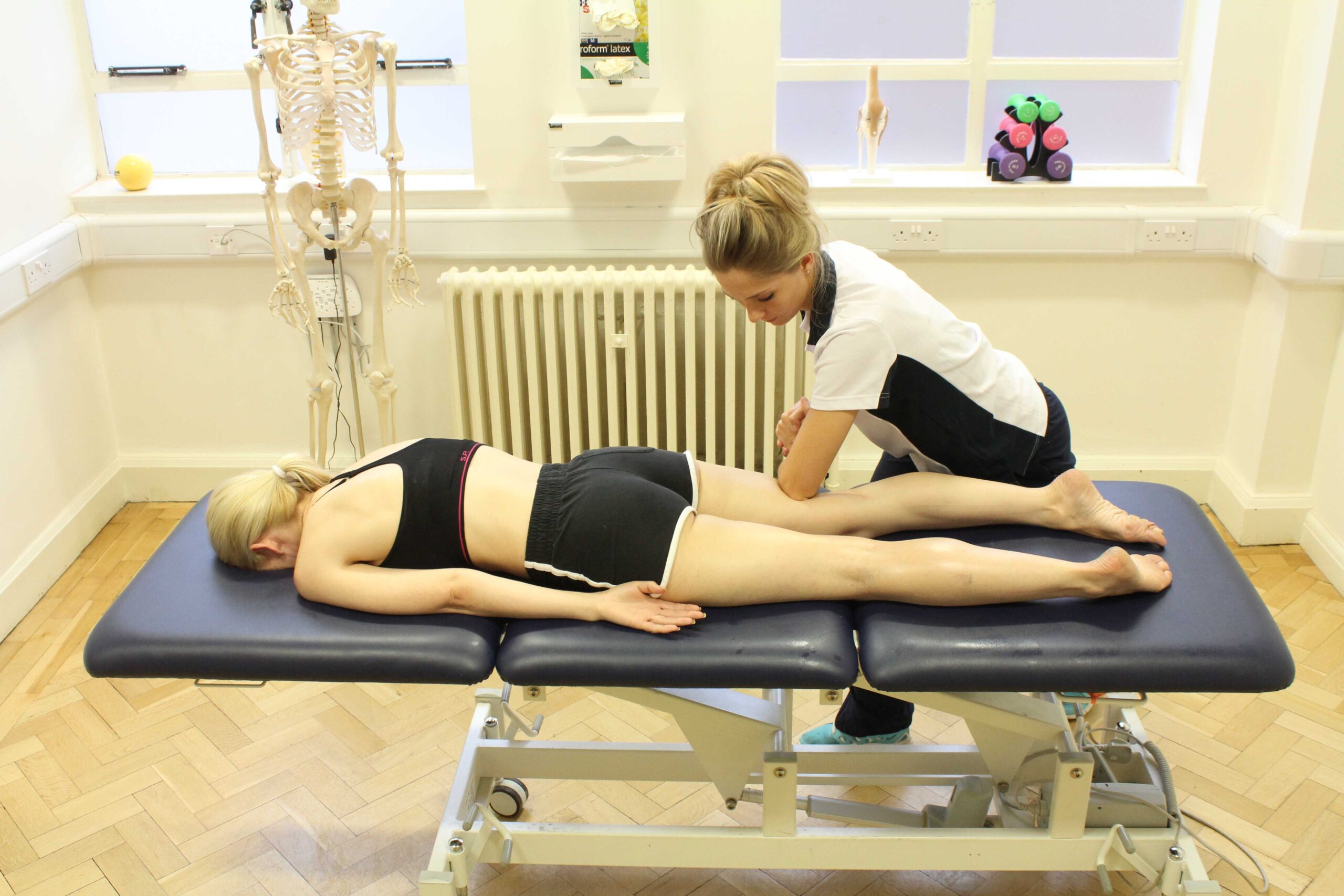Nerve damage can affect mobility, sensation and the overall quality of life, whether it’s caused by an injury, illness or a chronic condition. If you’re dealing with it, you might wonder: can physiotherapy cure nerve damage? While it might not fully cure nerve damage, physiotherapy can help relieve pressure on a nerve, which may reduce symptoms, such as weakness, loss of sensation, numbness or pins and needles.
In this article, we’ll explore how physiotherapy can assist with nerve damage, the techniques used and what to realistically expect from your recovery.
Can Physiotherapy Cure Nerve Damage? A Quick Overview
Physiotherapy cannot completely regenerate damaged nerves, but it is highly effective in:
- Supporting nerve regeneration and improving function.
- Managing pain and discomfort caused by nerve damage.
- Strengthening muscles weakened by impaired nerve signals.
- Enhancing overall mobility and independence.
Through personalised treatment plans, physiotherapy helps patients regain function and improve their quality of life.
Experience Expert Physiotherapy for Nerve Damage at Mind Heart Body Centre
Are you struggling with nerve damage in Artarmon or North Sydney? Mind Heart Body Centre offers tailored physiotherapy solutions to help you manage symptoms and regain mobility. Our experienced team uses proven techniques to support nerve recovery and improve your well-being.
Take the first step towards relief today. Call us on 8068 4696 or Book Now for personalised care.
What is Nerve Damage?
Nerve damage, or neuropathy, occurs when nerves are injured or disrupted. This can impair the transmission of signals between the brain, spinal cord and body, leading to symptoms like pain, weakness, numbness and tingling.
Causes of Nerve Damage
Common causes of nerve damage include:
- Injuries: Trauma from accidents, falls or sports injuries.
- Medical Conditions: Diabetes, multiple sclerosis or autoimmune disorders.
- Infections: Conditions like shingles or Lyme disease.
- Compression Injuries: Nerve impingement due to herniated discs or carpal tunnel syndrome.
- Toxic Exposure: Chemotherapy or certain medications.
Symptoms of Nerve Damage
Nerve damage symptoms vary depending on the type and severity of the injury but may include:
- Burning or stabbing pain.
- Muscle weakness or paralysis.
- Tingling, numbness or ‘pins and needles’.
- Loss of coordination or balance.
- Sensitivity to touch.
How Physiotherapy Supports Nerve Damage Recovery
Physiotherapy is a cornerstone in the treatment of nerve damage, focusing on symptom management, functional improvement and promoting nerve healing where possible.
Techniques Used in Physiotherapy for Nerve Damage
Physiotherapy uses a variety of techniques to support nerve damage recovery. These approaches aim to reduce pain, enhance mobility and restore function. Here are some common techniques that physiotherapists use to help manage and improve nerve damage:
- Exercise Therapy
- Strengthens muscles weakened by nerve dysfunction.
- Enhances blood flow, promoting nerve healing.
- Improves flexibility and joint function.
- Neuromuscular Re-Education
- Focuses on retraining the nervous system to improve coordination and movement patterns.
- Aids in restoring lost motor function.
- Pain Management Techniques
- Modalities like TENS (Transcutaneous Electrical Nerve Stimulation) to reduce pain.
- Manual therapy and massage to relieve tension and discomfort.
- Balance and Gait Training
- Addresses balance issues caused by nerve dysfunction.
- Helps improve walking patterns and prevent falls.
- Electrotherapy
- Uses electrical stimulation to activate nerves and muscles, improving strength and sensation.
- Education and Ergonomic Advice
- Provides strategies for preventing further nerve injury and managing daily activities.
Realistic Expectations for Nerve Damage Recovery
It’s important to set realistic expectations when undergoing physiotherapy for nerve damage. Here’s what to keep in mind:
Nerve Regeneration Takes Time
Nerves regenerate slowly, typically at a rate of 1 millimetre per day. Complete recovery may take months or even years, depending on the severity of the damage.
Symptom Management is Key
While physiotherapy cannot fully cure nerve damage, it effectively manages symptoms like pain, muscle weakness and mobility issues.
Functional Improvement is Possible
With consistent therapy, many patients experience significant improvements in strength, coordination and independence.
Can Physiotherapy Prevent Nerve Damage?
Physiotherapy also plays a preventative role by:
- Addressing conditions that may lead to nerve compression or damage, such as poor posture or repetitive strain.
- Educating patients on lifestyle changes to minimise risks, including ergonomics and proper body mechanics.
- Strengthening muscles and joints to support better overall function.
Who Can Benefit from Physiotherapy for Nerve Damage?
Physiotherapy is beneficial for individuals with:
- Peripheral neuropathy due to diabetes or other chronic conditions.
- Post-surgical nerve damage, such as after spinal surgery.
- Nerve compression syndromes like sciatica or carpal tunnel.
- Injuries affecting nerves in the arms, legs or torso.
How to Maximise Results with Physiotherapy
To get the most out of your physiotherapy sessions:
- Stay Consistent
Attend all scheduled sessions and follow your therapist’s advice. - Practice at Home
Perform prescribed exercises regularly to reinforce progress. - Communicate Openly
Inform your therapist about changes in symptoms or challenges. - Adopt a Healthy Lifestyle
Maintain a balanced diet, stay active and manage stress for optimal recovery.
Final Thoughts
While physiotherapy cannot fully cure nerve damage, it is an invaluable tool in managing symptoms, promoting recovery and improving quality of life. By addressing pain, weakness and mobility issues, physiotherapy helps patients regain independence and confidence in their daily activities.
Are you looking for professional physiotherapy services to manage nerve damage? Contact Mind Heart Body Centre today on 8068 4696 or Book Now for personalised care designed to support your recovery journey.


